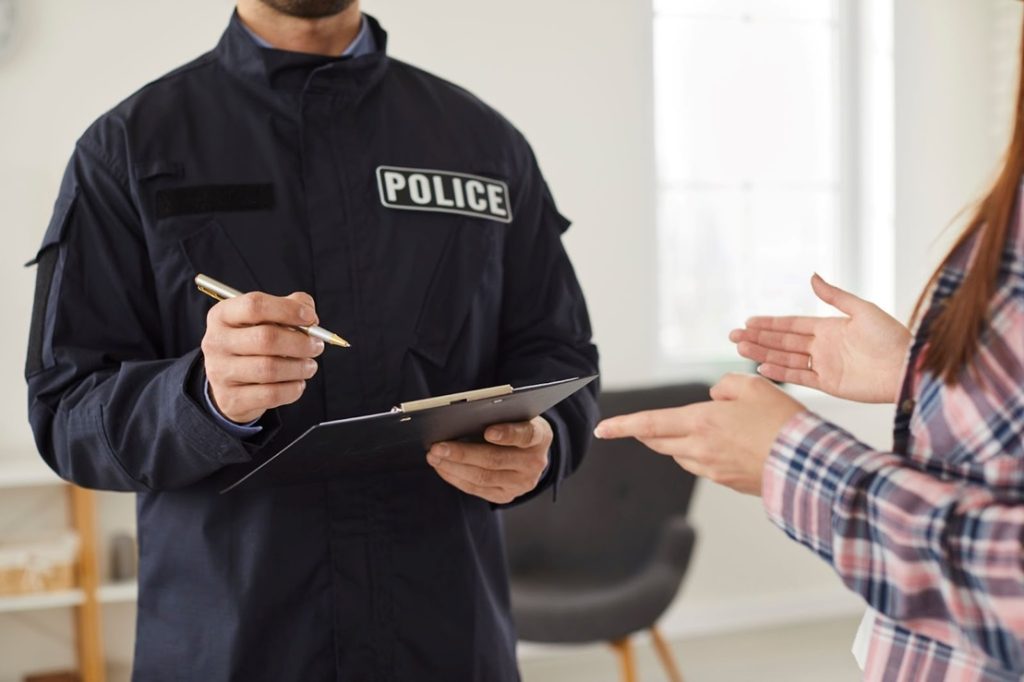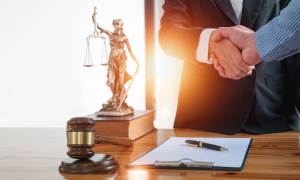
When facing the possibility of a police interview, it’s crucial to understand your rights and the legal implications of your actions. Knowing what to expect during this process can help you make informed decisions that could significantly affect the outcome of your case. This blog will explore the key aspects of a police interview, what your rights are, and how a criminal defence lawyer can assist you.
What Is a Police Interview?
A police interview is a formal conversation between you and the police, usually conducted when they suspect you may have been involved in a crime. The purpose of the interview is to gather evidence, clarify facts, and, in some cases, obtain a confession. The information obtained during the interview can be used against you in court, so it’s vital to approach this situation with caution and an understanding of your legal rights.
Your Right to Silence
One of the most fundamental rights you have during a police interview is the right to remain silent. This right is enshrined in law and is a critical component of your defence. You are not required to answer questions that could incriminate you, and in many cases, it may be in your best interest to exercise this right.
However, it’s important to note that remaining silent does not mean refusing to cooperate. You can politely decline to answer specific questions or state that you do not wish to provide a statement until you have consulted with a criminal defence lawyer. In some situations, there may be legal consequences for refusing to answer certain questions, particularly when the police are seeking basic information like your name and address. Therefore, it’s essential to understand the context and seek legal advice when necessary.
The Role of a Criminal Defence Lawyer
A criminal defence lawyer plays a crucial role in protecting your rights during a police interview. If you’re asked to attend an interview, it’s advisable to seek legal advice before doing so. A defence lawyer in Perth can provide guidance on how to approach the interview, what questions you may need to answer, and what to avoid.
Your lawyer can also be present during the interview, which can be invaluable. They can intervene if they believe the police are asking inappropriate or misleading questions and can help ensure that the interview is conducted fairly and lawfully. Having legal representation during a police interview can help level the playing field, as police officers are trained to ask questions in a way that may lead you to inadvertently incriminate yourself.
The Caution
Before a police interview begins, you will typically be given a caution. In Australia, this caution usually states: “You are not obliged to say or do anything, but anything you say or do may be used as evidence.” This statement is a clear indication that you should be careful about what you say during the interview, as your words could be used against you in court.
Understanding the caution and its implications is critical. It is a reminder that while you have the right to remain silent, anything you do choose to say can have significant legal consequences. A criminal defence lawyer can help you interpret this caution and decide how best to respond to police questions.
Voluntary vs. Compulsory Interviews
Police interviews can either be voluntary or compulsory. A voluntary interview means you have agreed to attend without being under arrest. While you are free to leave at any time, it’s important to remember that the information you provide can still be used as evidence.
In contrast, a compulsory interview occurs when you are under arrest or are otherwise legally obligated to attend. In these situations, it is even more critical to have legal representation. Your rights may be more limited, and the pressure to provide information can be intense. A defence lawyer can help you navigate this challenging environment and ensure that your rights are fully protected.
What to Expect During the Interview
During the interview, the police will likely ask you a series of questions related to the alleged crime. These questions may be direct, but they can also be leading or designed to elicit specific responses. It’s not uncommon for the police to ask the same question multiple times in different ways to test the consistency of your answers.
The interview will typically be recorded, and the recording can be used as evidence in court. This is another reason why it’s crucial to be careful with your responses. Anything you say can be scrutinised, and even seemingly innocuous statements can be used against you.
If you feel uncomfortable or unsure about any question, you have the right to pause the interview to seek advice from your lawyer. Never feel pressured to answer a question if you are unsure of its implications. Your defence lawyer can advise you on how to proceed and help you avoid making statements that could harm your case.
After the Interview
Once the interview is complete, the police may decide to take further action, such as charging you with an offence or releasing you without charge. In some cases, they may require you to return for further questioning. Regardless of the outcome, it is essential to stay in close contact with your criminal defence lawyer, who can guide you on the next steps and prepare your defence if necessary.
Final Thoughts
A police interview is a serious matter with potentially far-reaching consequences. Understanding your rights and knowing how to exercise them can make a significant difference in the outcome of your case. If you find yourself in a situation where the police want to interview you, seeking the assistance of a defence lawyer in Perth is essential. They can provide the legal expertise and support you need to navigate the interview process effectively and protect your rights.
Disclaimer: The information provided in this blog is for general informational purposes only and should not be construed as legal advice. Every legal situation is unique, and it is recommended that you seek professional legal counsel for advice tailored to your circumstances.







